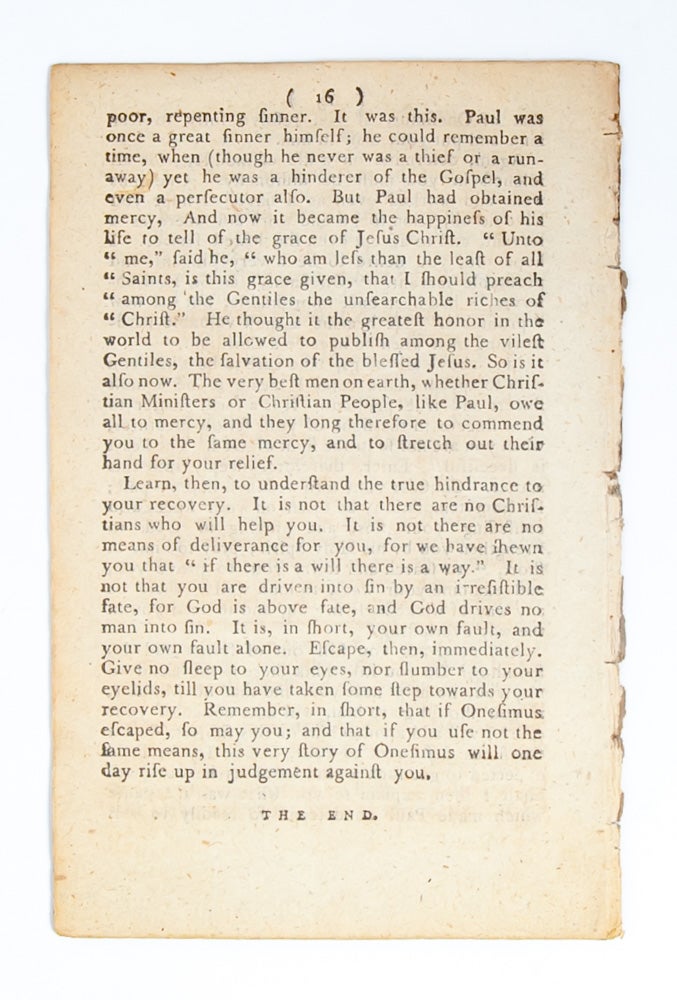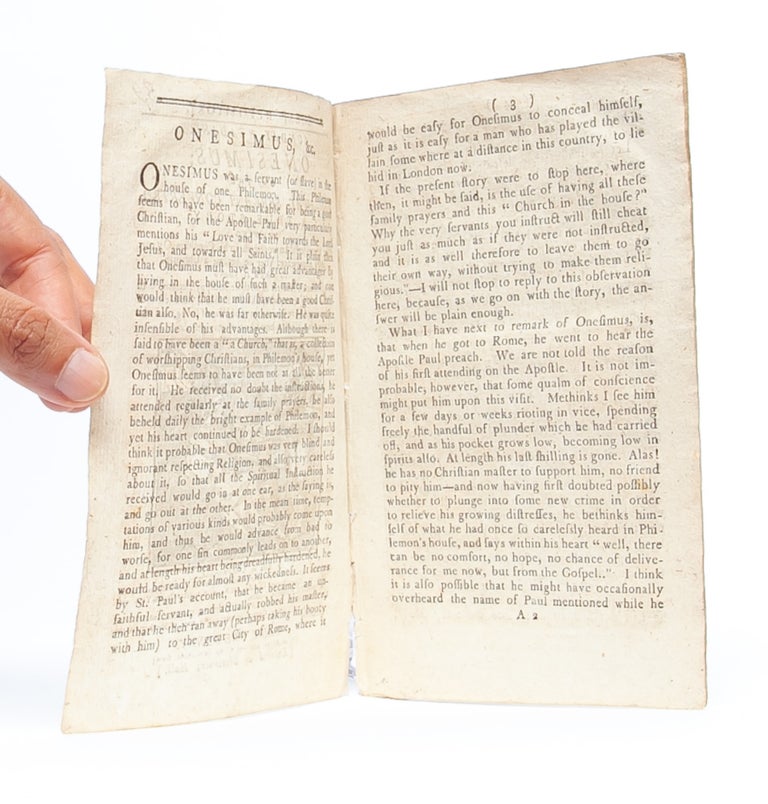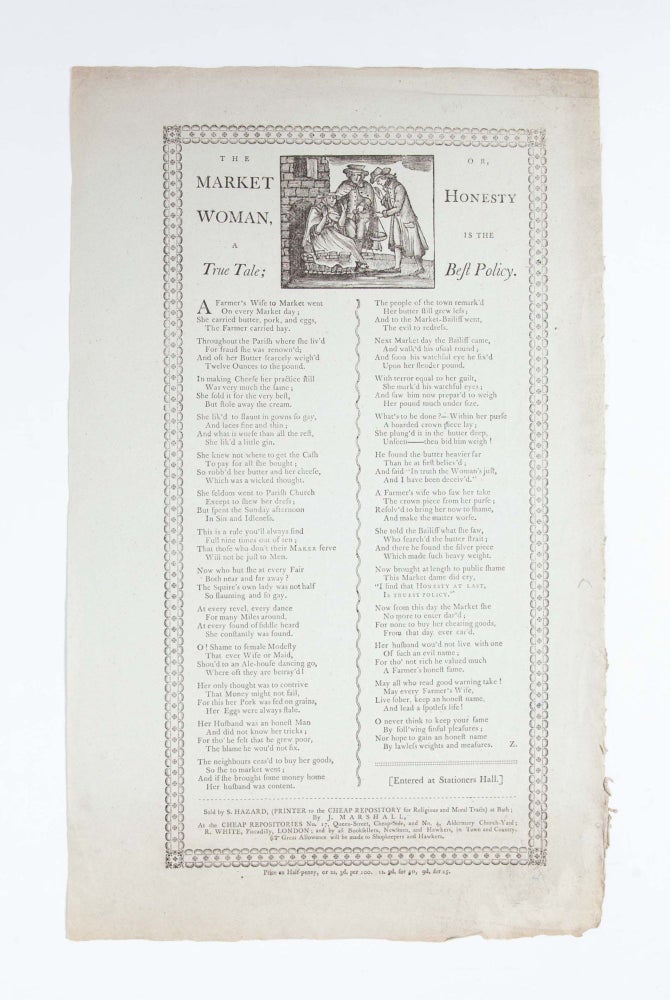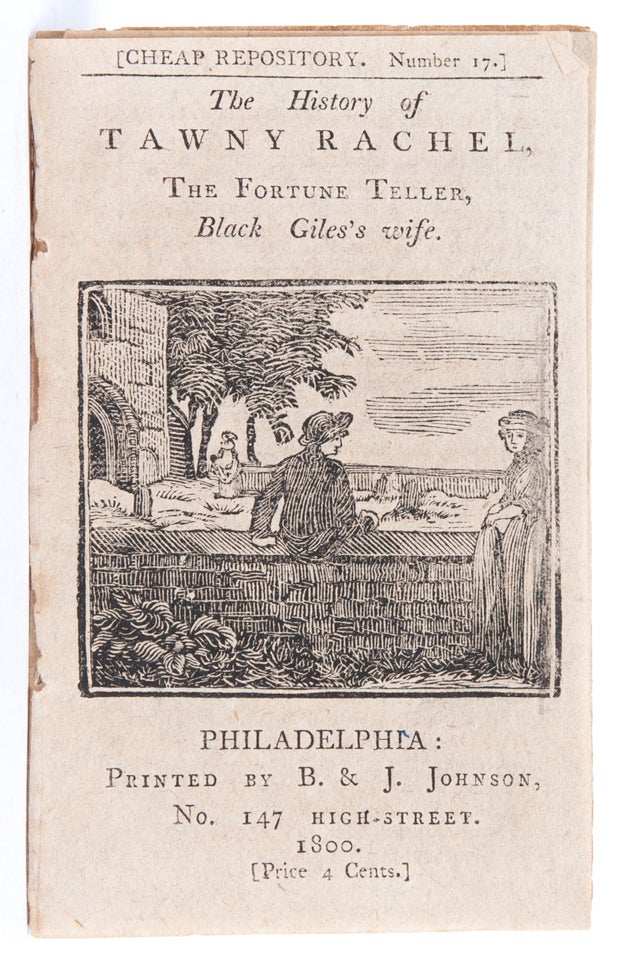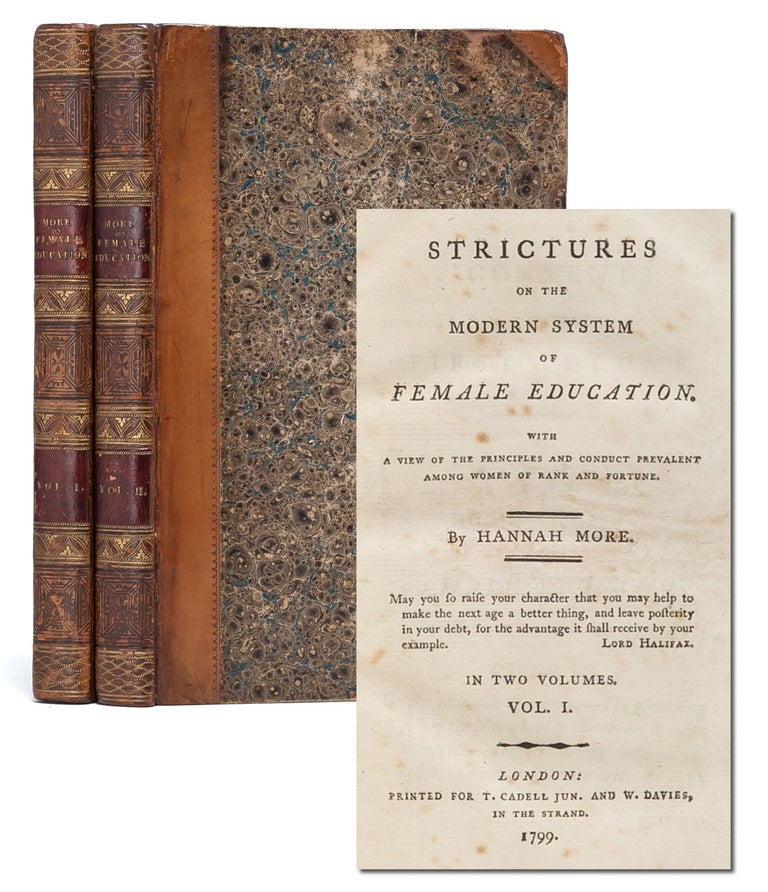Onesimus; or, the Run-Away Servant Converted. A True Story
London and Bath: J. Marshall, R. White and S. Hazard, 1796.


Onesimus; or, the Run-Away Servant Converted. A True Story
London and Bath: J. Marshall, R. White and S. Hazard, 1796. First edition. Complete in 16 pages, with woodcut to front wrap. Disbound but holding well, with the front wrap a bit tender near the foot of spine. Small ink notation to upper front corner and pages with some mild toning, else unmarked. Of the three scarce variants listed on ESTC, the present has "price one penny" with no list of prices for larger quantities and is not recorded in Spinney. ESTC records only two examples of the present variant, making it the most rare (compared to 4 and 19 of the others); and it is the only one of any variant on the market.
A narrative designed for "all those unhappy Persons, both Men and Women, who like Onesimus have left their Home and have got into a bad way of living," the present Cheap Repository tract aimed to provide guidance. Onesimus, a servant in the house of Philemon, initially disregards Christian teaching in favor of envy and sin; and he decides to rob his master, flee to Rome, and reinvent himself. Yet the influence of God is not easily fled. For Onesimus, change comes when he hears the apostle Paul preach after "some qualm of conscience" resulted from "his pocket growing low, becoming low in spirits also" and realizing he has "no Christian master to support him and no friend to pity him." A tale of conversion as well as forgiveness, More highlights that Onesimus embracing the Gospel, confessing his crimes, and putting his outcome in God's hands connects him to other Christians. For Philemon admits traveling a similar path to Onesimus'; and together, they set the past aside and model their human forgiveness on grace.
While More's tale focuses on a male protagonist, she sees her main audience as "those unhappy women who, like Onesimus, have run away from their proper homes...and who are now ruined in their character...in our great towns or among the dregs of people in the metropolis." At a time when London's Covent Garden sex trade was operating at its height, it is not surprising that More might feel concern for the numbers of women coerced or choosing to work in its ranks. Conservative in her efforts to instill some shame and guilt into such women, she nonetheless reminds those who may, in fact, want to depart it that reentry to Christian society is possible. Ultimately, it comes down to choice. "It is not that there are no Christians who will help you. It is not that there are no means of deliverance for you...It is not that you are driven into sin by any irresistable fate." An optimistic message, More nonetheless elides some major social differences between how Onesimus' theft and the lives of sex workers were viewed economically, socially, and legally.
ESTC N508963. (Item #4432)

